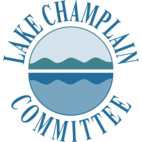Cyanobacteria Monitoring Program Underway
Check the tracker for algae conditions on Lake Champlain.
The Vermont Department of Health (VDH) algae tracker is up and running for the summer and LCC staff and volunteers are feeding data into it every day. Health officials use information from the tracker to inform community advisories about harmful blooms occurring in Lake Champlain and other inland lakes.
This season LCC staff have trained more than 300 citizens along with municipal, recreation and public health staff in how to assess and report on water conditions. Every week we receive 100 or more observations from trained volunteers who check sites on Lake Champlain and several inland lakes. By crowd-sourcing our data collection we create a core group of community members who know how to identify harmful algal blooms and can spread the word among their neighbors and friends. You can stay up to date on conditions by checking the algae data tracker and <link lcc-at-work algae-in-lake blue-green-algae-weekly-report-subscription>subscribing to our weekly blue-green algae report. If you see a bloom on the lake please <link get-involved volunteers bgamonitors algae-monitor-reporting-form-2016>report it right away using LCC's online form. (You'll find further <link get-involved volunteers bgamonitors algaebloomintensity>guidance on how to recognize and categorize blooms on our website and can also take our training video.)
LCC has been working with VDH and the Vermont Department of Environmental Conservation (VT DEC) to expand the monitoring program and publicize results. The tracker is the most up-to-date source for vetted information on blue-green algae conditions and is accessible to anyone with an internet connection. Last year the tracker program was featured as a Center for Disease Control success story.
The tracker is most useful at providing guidance for people wishing to swim or recreate on the lake, but there is a second monitoring program for drinking water facilities. LCC, VT DEC and VDH coordinate training sessions for public water supply personnel. The two state agencies offer cyanotoxin analysis for the 22 public drinking water facilities on Lake Champlain at no cost to the water supplier. In the two years of the program there have been no detections of cyanobacteria toxins in water delivered to customers.
